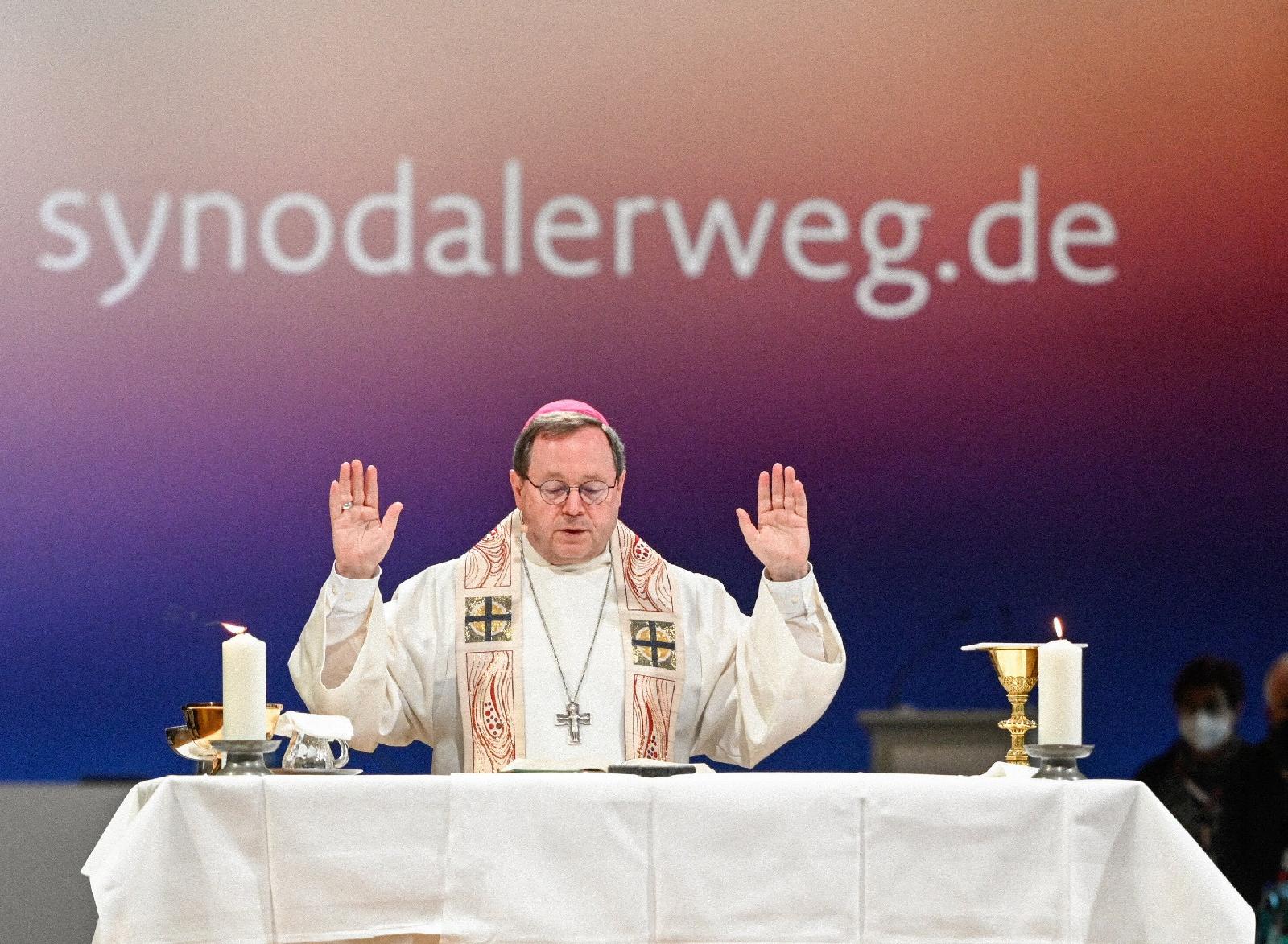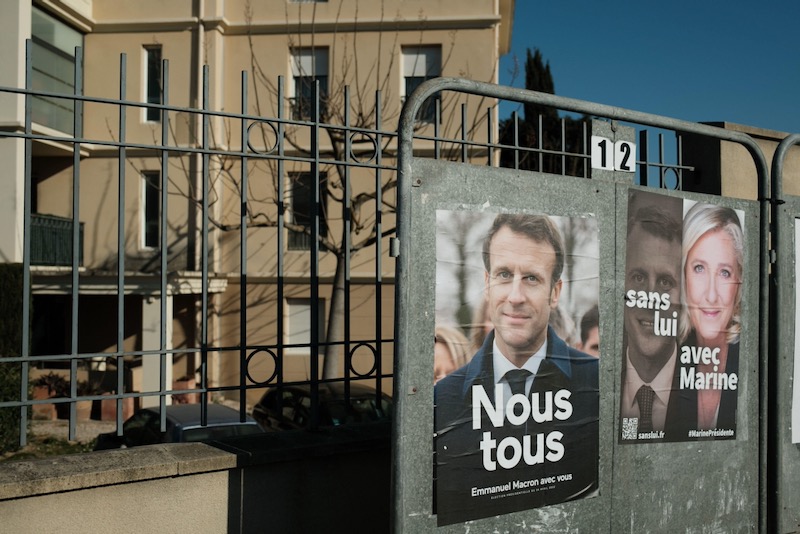With the French presidential election coming down to the wire, incumbent Emmanuel Macron still holds a fragile lead but the polarised Catholic vote has analysts saying a traditionally conservative voting bloc has turned firmly far-right.
That concern comes as Catholic bishops have refrained from urging voters to shun the authoritarian option, represented by far-right leader Marine Le Pen, in the first election where it could overtake the democratic candidate Macron.
The bishops used to openly oppose the far-right, represented by a party now called the National Rally (RN), but that was when its victory seemed totally improbable. The last time they did this was in 2002.
Polls show 40 per cent of self-declared Catholics backed the three far-right candidates – RN leader Marine Le Pen, Éric Zemmour and perennial campaigner Nicolas Dupont-Aignan – in the first round on 10 April. The national average for these candidates was 34 per cent.
“The more moderate [Catholic voters] have become invisible,” wrote Yann Raison du Cleuziou, a sociologist of Catholicism. "This right-wing radicalisation of Catholics will probably be long-lasting.”
The French bishops’ decision to not call for rejection of the far-right has attracted more attention this time around because it is actually possible for the far-right to defeat the centrist candidate tomorrow (Sunday 24 April).
But the polarisation of Catholic voters means most bishops put a priority on not angering their congregations.
“The bishops … do not want to throw oil on the fire,” said Amiens Bishop Gérard Le Stang, “even if everyone can tremble at the prospect of whether this or that candidate wins.”
The issue is pressing because Le Pen, as local media have begun to highlight, wants to make sweeping changes in French policy. Her “French first” approach goes against both French and European laws in employment, benefits, immigration and open borders.
Although not “Frexit”, it would amount to a severe hollowing out of democratic norms from within, a tactic used by her models Hungarian Prime Minister Viktor Orbán and former US President Donald Trump.
The bishops were more concerned about legalised euthanasia, the left-wing daily Llbération wrote, than “the growing instrumentalisation of the topic of Christian roots” by the Jewish-born Zemmour, who says he is for the Church but against Christ. “This could seem like a historic error,” it said.
The sexual abuse scandal, which hit home when an independent review last October estimated up to 330,000 abuse cases in France since 1950, has added to the weakening of the Church’s message.
“There is a devaluation of the Church's ability to set standards,” said Philippe Portier, another specialist on Catholicism in France.
On the campaign trail, Macron has veered to the left with a strong ecological programme he promised while trying to woo left-wing voters in Marseille who opted for Jean-Luc Mélenchon in the first round.
In a news conference meant to show her foreign affairs competence, Le Pen sketched out policies that stressed her far-right orientation. Among them were a departure from Nato’s integrated command structure and a “strategic rapprochement between Nato and Russia” as soon as the Ukraine war is over.



 Loading ...
Loading ...